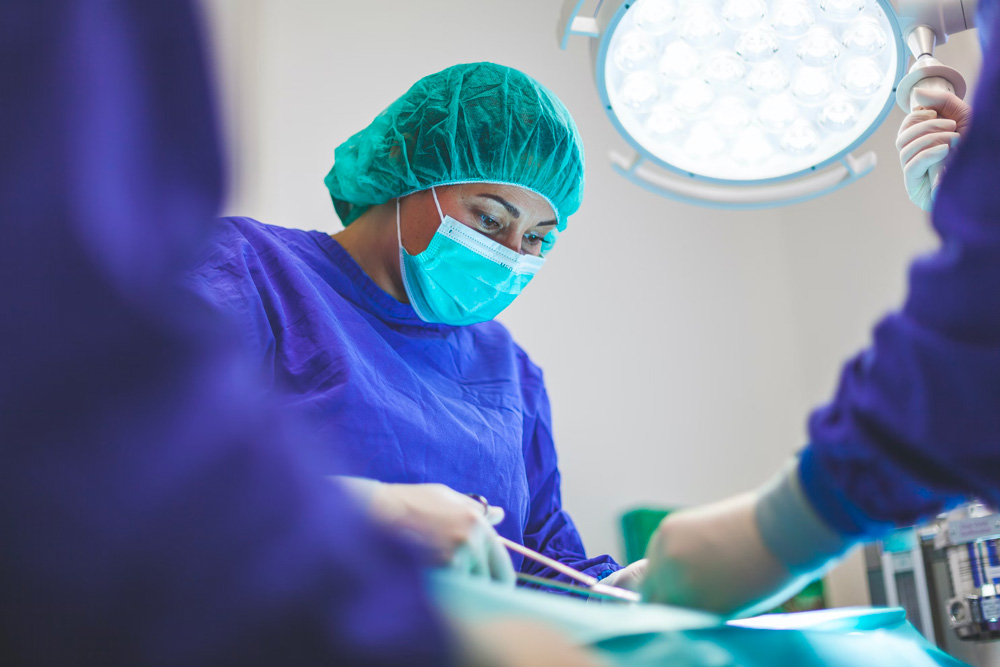5 minute read

Surgery, a word that can instill a sense of unease and uncertainty, is a journey that doesn’t end once the procedure is complete. The path that follows, the recovery phase, is a critical component of the healing process. It’s a path that the patient never walks alone. The role of family and friends becomes of paramount importance, offering the support, care, and encouragement that can make all the difference. This document is dedicated to exploring the various ways you can extend your hand, making this journey to recovery smoother and more comfortable for a loved one who has undergone surgery.
Offering Emotional Support
Emotional support is as crucial as physical care in the recovery journey post-surgery. Being there for your loved one can mean listening to their concerns, offering words of encouragement, or simply sitting silently by their side. It’s about creating an environment of positivity and calm, helping them to reduce anxiety and stress. Remember, emotional well-being has a strong impact on physical health. So, don’t underestimate the power of a comforting word or a reassuring smile. It can go a long way in accelerating the healing process. If your loved one is feeling down, you can also recommend activities that could help cheer them up, such as reading a book or going for a walk.
Add A Home Lift
If your loved one is wheelchair-bound and needs to move between floors of a multi-level home, then you should consider investing in a home lift. Installing a wheelchair lift in the house will make it easier for them to get around without having to rely on someone else’s help. Additionally, some lifts are even equipped with features that allow them to use the lift independently. Namely, whether you decide to take a look at the offer from this website https://www.stiltzhealthcare.com, or you opt for a different supplier, make sure the home lift comes with the right safety features as well. Picking the best home lift should be a top priority for you, as it will enable your loved one to use the stairs without having to worry about putting too much strain on their body.
Provide Nutritious Meals
Nutrition becomes an even more important factor in recovery after surgery. A healthy diet can help ensure that your loved one is well-nourished and getting enough nutrients to support their recovery. Prepare meals that are rich in proteins, vitamins, minerals, and carbohydrates to give them the energy they need. You can also refer to the doctor’s recommendations as far as specific foods are concerned and adjust the diet accordingly. If you are unsure of what dishes would be beneficial for their health, don’t hesitate to ask a nutritionist or doctor. On the other hand, you should also be mindful of any foods that your loved one might have to avoid. Ask the doctor for advice and make sure you stick to their instructions when it comes to dieting.
Ensure That They Get Enough Rest
Sleep is a vital part of recovery after surgery. During this time, the body repairs itself and recovers from physical exhaustion. Insufficient sleep can lead to slower healing and fatigue, so it’s important that your loved one gets enough rest. You can make this easier by creating a comfortable environment that encourages relaxation. Make sure the bedroom is dark and the temperature is just right for them to fall asleep easily. If they tend to be restless in bed, you can provide distractions such as soothing music or light reading material.
For example, if your loved one enjoys audiobooks, you can download a few to help them unwind and drift off into peaceful slumber. You can also encourage naps throughout the day as this has been proven to aid in healing.
Providing Physical Care
Post-surgery care requires both physical and emotional support. Depending on the nature and extent of the surgery, your loved one may require assistance in various areas like bathing, changing clothes, taking medication, and more. It’s important to keep an eye out for any warning signs such as difficulty in breathing or chest pain, and act accordingly. In addition, check with the doctor regarding instructions on how to care for wounds or incisions specifically. A lot of times, the healing process may involve regular dressing of the wound to prevent infection or keep it clean. In case you notice any redness, swelling, or discharge around the area, be sure to inform the doctor immediately. Staying vigilant and taking the necessary precautions can make a world of difference in your loved one’s recovery.
In conclusion, recovering from surgery is a complex process that requires physical, emotional, and nutritional support. As a caregiver, your role is vital in providing comfort, peace, and assistance during this challenging journey. Whether it’s offering words of encouragement, ensuring nutritious meals, creating a soothing sleep environment, or providing hands-on care, each act makes a significant difference in your loved one’s healing path. Remember, the journey to recovery is one best traveled together, and through patience, vigilance, and love, you can help your loved one return to health and normalcy.





